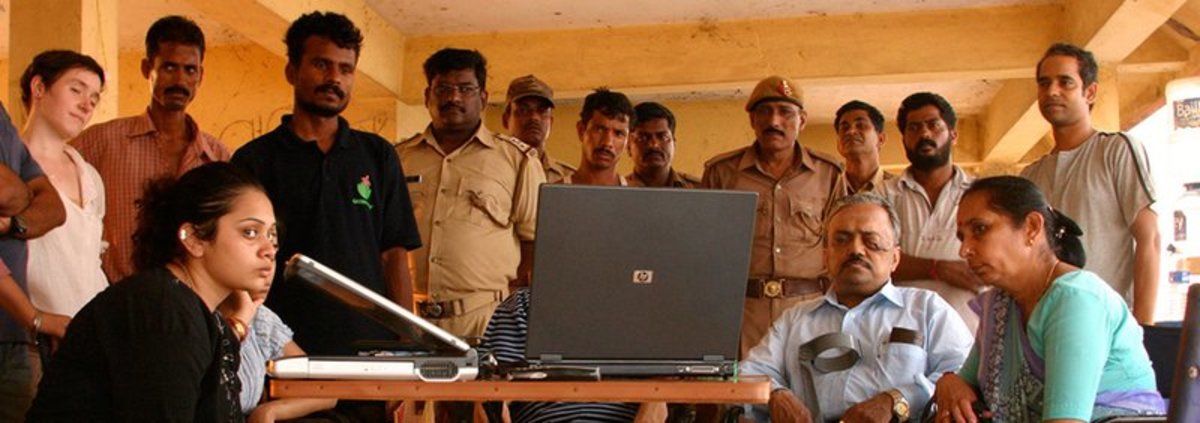
The Philippines has the world’s third largest remittance market just behind India and China, with overseas remittances reaching more than $25.1 billion in 2013. But due to the country’s poor banking systems and expensive remittance services, overseas Filipino workers and the local workers working far from their provinces have always searched for alternative systems for transferring cash.
For generations, remittance services including Lhuiller and Palawan Pawnshop dominated the market in the Philippines, despite its high transaction fees. On average, the fees are close to 10 percent for small transactions ranging from $1 to $300. The majority of overseas workers have been using expensive remittance services due the bank’s inefficiency in sending payments and its substantially high minimum deposit rates.
Since late 2013, Bitcoin startups aiming to introduce bitcoin as a remittance solution began to emerge. One of the first Bitcoin startups to do so is Coins.ph, founded by Ron Hose.
Coins.ph
Coins.ph launched its platform in 2014, announcing a major partnership with Metrodeal, the largest e-commerce store in the Philippines. Started out as a bitcoin payment processor for merchants and a bitcoin exchange, Coins.ph evolved into a complete bitcoin service through partnerships with the country’s largest financial institutions and banks including the aforementioned remittance service Lhuiller, BDO (Banco de Oro), BPI, China Bank, HSBC, RCBC, MayBank and many others.
On December 17, 2014, Coins.ph partnered with Security Bank, which has allowed Coins.ph users to withdraw cash in 450 ATMs nationwide. The partnership also meant that Coins.ph users could purchase bitcoin by depositing cash to the ATMs.
Since December, Coins.ph continued to add features to help day-to-day purchases, currently allowing users to pay bills for utilities (electricity and water), credit card, cable providers, insurance and tuition.
BitSpark
Launched in late 2014, Bitspark is a bitcoin remittance startup which initially aimed to help overseas Filipino workers transfer cash to the Philippines using bitcoin.
The Hong Kong-based startup charges less than 1 percent in transaction fees, which Is substantially lower than Lhuiller, Palawan Pawnshop and the global remittance service Western Union.
To send payments, Hong Kong-based workers can simply visit the Bitspark booth in World-Wide House (a place where most migrant workers spend their time during weekends) and give them Hong Kong dollars and specify the preferred bank outlet.
Due to its success in Hong Kong, BitSpark expanded to Indonesia in January of 2015, targeting more than 165,000 Indonesians working or staying in Hong Kong. Bitspark partnered with Artabit, an Indonesian bitcoin payment solution to allow the recipients to collect Indonesian Rupiah from a bank or a post office.
During its expansion, Bitspark stopped charging its transactions fees in percentages. Instead, the startup began charging a flat fee of $25 HK (to Indonesia) and $14 HK (to the Philippines).
In April, Bitspark partnered with multi-sig institutional wallet security provider BitGo, following the startup’s first external funding round.
“There are a number of Bitcoin startups involved in the Philippines remit corridor but the volumes are still low compared to the established incumbents so there is still plenty of room for growth,” the CEO of Bitspark George Harrap told Bitcoin Magazine.
“I think you will continue to see this area grow over the coming years and Bitcoin remittances reaching more people forcing existing businesses to consider adopting Bitcoin as a means of transmission of money,” he added.
Harrap also told Bitcoin Magazine about the company’s vision for expansion, explaining, “Ultimately we want to continue to bring our services to more people in more places throughout the APAC region. We are seeing a rise in B2B interest, which is something we are pursuing at the moment and we’re focusing on the sell sell sell, getting the word out.”
Rebit.ph / Satoshi Citadel Industries
Launched by the co-founder of Satoshi Citadel Industries, Miguel Cuneta, Rebit.ph allows its users to receive cash in more than 20 different bank outlets. Rebit receives BTC from anywhere around the world and converts the BTCs to Filipino pesos with a zero percent conversion fee.
The parent company of Rebit.ph, Satoshi Citadel Industries, has acquired and launched many of the Philippines’ active Bitcoin startups including the nation’s first bitcoin exchange Buybitcoin.ph, Bills Ninja, prepaidbitcoin.ph and Bitmarket.ph.
Remittance is and has always been a serious problem for both overseas and local employees in the Philippines. Although trading volumes of bitcoin remittance startups are substantially lower than the existing remittance services, the number of employees sending remittances in bitcoin is rising so quickly that the bitcoin remittance startups may be able to compete with the existing remittance services such as Western Union or Lhuiller in the near future.










